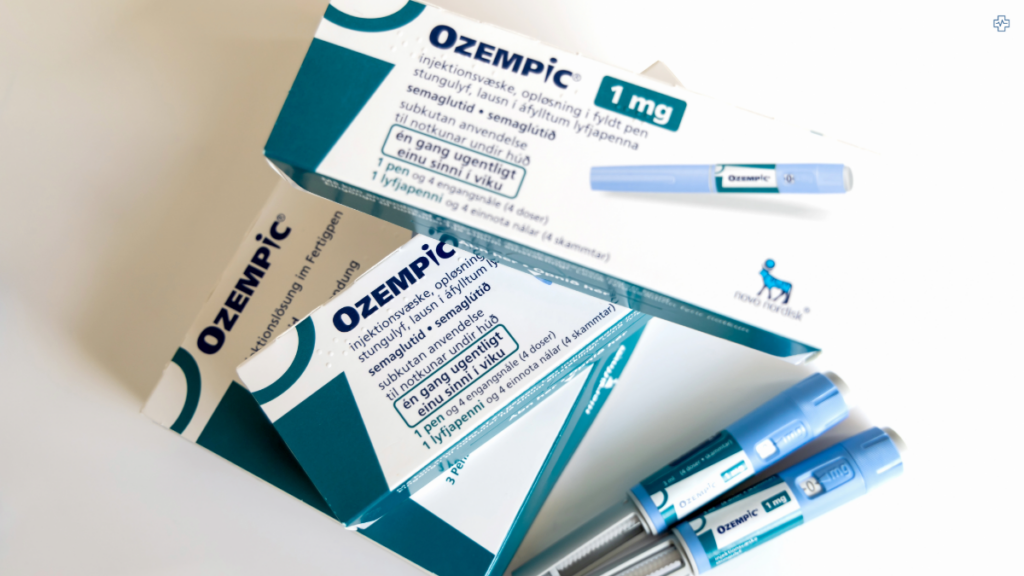Is the pharmaceutical industry finally maturing? Sector giants like Novo Nordisk and Eli Lilly are making headlines with their breakthrough weight loss medications and Novartis has taken a notably different path, for a change. Rather than entering the booming weight loss drug market, which is projected to become a multi-billion dollar industry, Novartis has opted to focus on areas where it believes it can maintain a competitive edge.
This strategic decision comes as other pharmaceutical companies rapidly develop and launch weight loss treatments, such as Novo Nordisk’s Wegovy and Eli Lilly’s Mounjaro, both of which have demonstrated significant benefits beyond weight reduction, including improvements in cardiovascular health. Novartis’s decision reflects a conscious avoidance of this increasingly saturated and competitive market, focusing instead on innovation in other areas of medical research.
The decision to sidestep the weight loss market mirrors similar moves from other pharmaceutical companies that are choosing to concentrate their efforts on more niche or underexplored therapeutic areas. For instance, companies like Pfizer and AstraZeneca have recently doubled down on oncology and immunotherapy treatments, areas where they hold significant expertise and see substantial growth potential.
By contrast, weight loss drugs, though lucrative, are becoming highly competitive, with market leaders making it difficult for new entrants to establish themselves without groundbreaking innovations. Novartis, therefore, appears to be taking a calculated risk by investing in fields such as oncology, rare diseases, and immunology, where it can leverage its existing capabilities and resources to drive long-term growth.
Navigating a Competitive Market
Novartis’s decision to avoid the weight loss drug market can be attributed to several key factors, one of which is the current saturation of the market. With companies like Novo Nordisk and Eli Lilly already dominating this space, Novartis would face steep competition. Novo Nordisk’s Wegovy, for instance, not only helps patients lose significant weight but also has shown promise in reducing the risk of heart attacks and strokes, positioning it as a groundbreaking therapy with broad applications. Competing with such an established product would require Novartis to introduce a drug that offers substantial innovation—a costly and risky venture in a crowded market.
Furthermore, Novartis appears to be prioritising innovation in areas where it already has a strong foothold, such as cancer treatment, immunology, and gene therapy. By focusing on these sectors, Novartis may be aiming to achieve more predictable growth and avoid the uncertainties associated with entering a market dominated by a few key players. The financial risk of developing a new weight loss drug is also considerable, particularly given the heavy investment required for clinical trials and marketing to compete with established drugs like Wegovy and Mounjaro. Instead of pursuing a potentially risky and expensive venture in weight loss, Novartis is doubling down on its core strengths, including its portfolio of therapies for rare and complex diseases.

Moderna’s mRNA-4359 is a Glimpse into the Future of Cancer Treatment
While Novartis is focusing on its established areas of expertise, other companies are venturing into bold new frontiers of medicine. Moderna, best known for its success with mRNA-based COVID-19 vaccines, is now exploring how its mRNA technology can be applied to cancer treatment. The company’s mRNA-4359, an experimental cancer vaccine, represents a new approach to immunotherapy, specifically targeting solid tumors that have historically been difficult to treat due to their ability to evade the immune system.
Moderna’s mRNA-4359 works by instructing the body’s cells to produce proteins associated with cancer cells, effectively training the immune system to recognise and attack these cells. This personalised approach could transform the way cancer is treated by targeting tumors more precisely than traditional therapies like chemotherapy, which often cause significant collateral damage to healthy cells. Early results from clinical trials are promising, showing that the vaccine can stimulate a robust immune response. If successful, mRNA-4359 could become part of a broader movement to personalise cancer treatments, potentially reducing side effects and improving outcomes for patients with solid tumors.
The Broader Implications of mRNA Technology
The potential of Moderna’s mRNA technology goes beyond cancer treatment. As a platform technology, mRNA has the versatility to be adapted for a wide range of therapeutic applications, including vaccines for infectious diseases and treatments for autoimmune conditions. mRNA vaccines work by instructing the body’s cells to produce antigens, which then trigger an immune response, offering a highly targeted approach that can be tailored to specific diseases. In the case of mRNA-4359, the vaccine could potentially not only treat existing cancers but also help prevent recurrences by establishing an immune memory against tumor antigens.
However, despite its promise, challenges remain for mRNA-4359 and other similar therapies. Ensuring that the mRNA molecules reach the correct cells in the body, managing potential side effects from an overactive immune response, and scaling up production to meet global demand are all hurdles that need to be addressed. Nevertheless, Moderna’s early results have sparked optimism in the medical community, and continued investment in mRNA-based therapies could yield revolutionary treatments for cancer and beyond.
A Strategic Gamble for Novartis
While Moderna’s mRNA cancer vaccine offers a glimpse into the future of personalised medicine, Novartis has chosen a more conservative yet calculated path. By avoiding the competitive weight loss market, Novartis is focusing on areas where it believes it can deliver greater long-term value. This strategy may prove prudent, especially as the company continues to see strong performance in other areas. In recent financial reports, Novartis has shown solid growth in its oncology and immunology segments, with drugs like Cosentyx and Kymriah driving revenue increases. The company’s decision to avoid the weight loss market could enable it to allocate more resources to these high-growth areas, ensuring its competitive position in fields where it already excels.
Moreover, Novartis’s decision not to enter the weight loss market aligns with its broader strategy of focusing on high-value therapeutic areas, particularly in the treatment of rare diseases and advanced therapies. By investing in its strengths, Novartis is positioning itself for sustained growth, even as competitors continue to dominate the weight loss drug market. Time will tell if this strategic choice pays off, but with a solid pipeline and a strong financial foundation, Novartis seems well-prepared to navigate the evolving pharmaceutical landscape.

